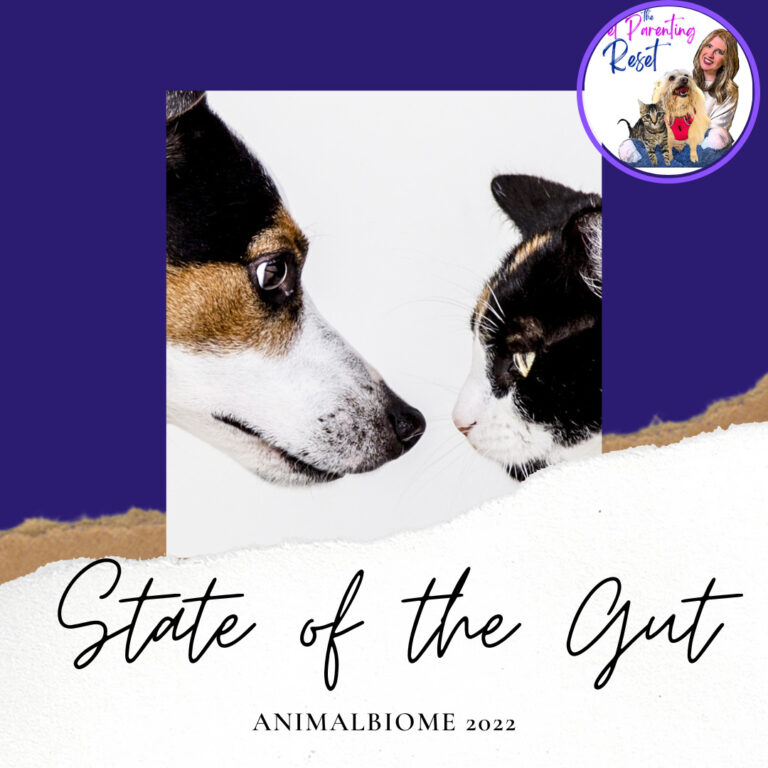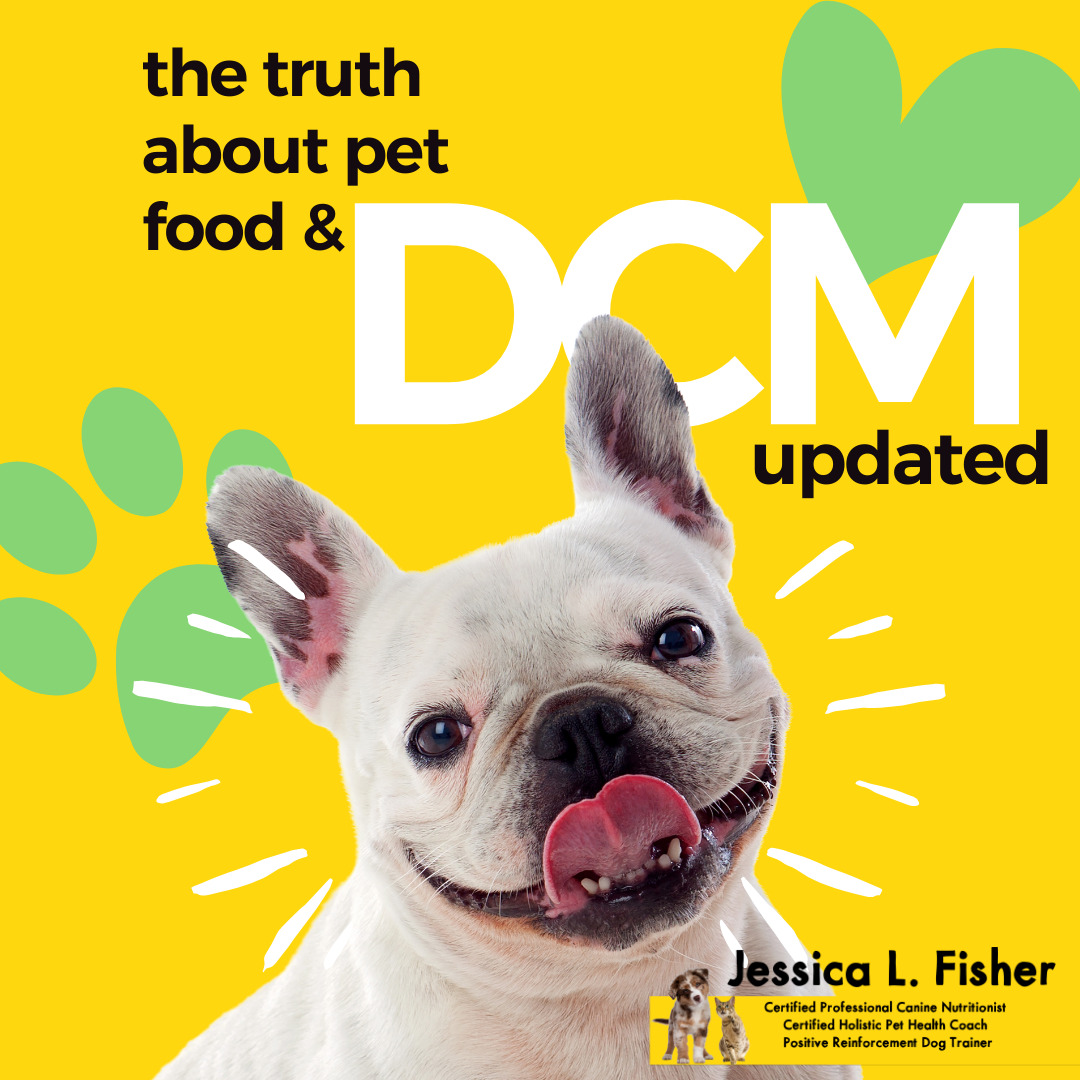Unless you’ve been hiding under a rock, you’ve probably heard about the importance of gut health in the past couple of years. There is no exception with pet health. While we’ve thought for so long that our brains control our bodies, we now know that our gut controls our brains. Additionally, 70% of the immune system is located in the gut. This is true in humans, dogs, and cats . .. all mammals, in fact, based on this study from the National Library of Medicine called Mammalian Gut Immunity.
What is Animal Biome?
According to the AnimalBiome website,
At AnimalBiome, we’re committed to using our expertise in microbiome science to improve the lives of pets. Our award-winning products help cats and dogs who suffer from diarrhea, vomiting, itchy skin, and other symptoms related to imbalances in the gut microbiome.
We developed the world’s first microbiome testing service for pets. Using genetic sequencing, our scientists have analyzed and characterized the individual gut microbiomes of more than 30,000 cats and dogs. From this, we came to understand what the microbiome of healthy cats and dogs should look like, and we use this understanding to recommend dietary changes and supplements to improve cat and dog health. We also use these insights to create award-winning supplements to help cats and dogs suffering from a range of health problems related to gut imbalances, including diarrhea, vomiting, and itchy skin.
Our testing and supplement products give pet parents and veterinarians a scientific, comprehensive roadmap to longer, better lives for pets through improved gut and overall health.
Today, in 2022, they have tested over 50,000 gut samples from dogs and cats. According to their site,
Since 2015, AnimalBiome has conducted more than 25 studies exploring the role of the gut and oral microbiomes in the health of companion animals (cats, dogs, ferrets, horses, and rabbits).
In collaboration with world-renowned animal nutritionists, we’ve compared the impact of raw and cooked foods on gut health. We’ve worked with pet food and supplement companies to analyze the effects of their products on the gut microbiomes of pets.
We’ve partnered with nonprofit dog-breeding organizations, including Leader Dogs for the Blind, to support and improve the gut health of breeding females and their puppies. And every day, we work with pet parents around the world to better understand how our Gut Restore Supplements improve the gut and overall health of cats and dogs with chronic health conditions.
I don’t recall when I first heard about AnimalBiome, but I know that once I spoke to Dr. Odette Suter on my podcast The Pet Parenting Reset, I knew it wasn’t just another test or another fad. If you’re searching on your podcast app on your phone, it’s episode 41.
AnimalBiome has test kits for both gut health and oral health for both dogs and cats, plus a line of products to help your pets after testing, such as FMT capsules (fecal transplant), gut cleansing, gut restoring, oral cleansing, and more.
I recently sent in samples for the gut health test kits for 2 of my cats and I’ll write about that once I receive the results. I plan to test my other 2 cats with the gut test kit, but I first want to test my dog, Kimberly with both the gut health and the oral health test kits.
The AnimalBiome State of the Gut Report 2022
If you haven’t downloaded your copy yet, you can get it here: https://doggybiome.com/expert-advice/state-of-the-gut-report-news-dog-parents-can-use/ They have a consumer version and a veterinary version but as consumers, we only have access to the consumer version.
Many issues that our dogs and cats are experiencing can be linked to an imbalance in gut health, sometimes called dysbiosis. As the pamphlet points out, “A gut microbiome is imbalanced when it is missing beneficial bacteria, has too many harmful bacteria, or does not have enough diversity in the types of bacteria. When your pet’s gut is out of balance, some of the gut’s important functions don’t work as well. Factors like disease, age, diet, and medications — especially antibiotics — can contribute to the development of an imbalance in your cat or dog’s gut.”
One thing that I found to be interesting is that although the pet parents that were surveyed had interacted with, possibly even utilized services through AnimalBiome. Yet, some were still not aware of the importance of gut health. Fewer cat parents felt that gut health was important, at 87%, versus dog parents at 92%.
Since I live in Texas, I also found it interesting that the survey results show that Texans believe gut health is important for dogs at an above-average rate, while the same people found it to be low for cats.
Texas also has a very high exposure rate to factors that negatively influence gut health for dogs, and above-average exposure for cats, according to the report.
Texas, we need to talk!
Overwhelmingly, across the board in all states, pet parents are doing nothing to treat the symptoms of a gut imbalance in their dogs and cats (the primary symptoms being diarrhea and skin issues).
All of that said, the most interesting thing I learned was about E.coli.
E.Coli and gut health
E. Coli is a natural part of the gut microbiome for all of us mammals. When it is out of balance, there are problems. We’ve all been taught to run in fear from E.C Coli, that’s nothing new, but the interview that Dr. Odette Suter had with Holly Ganz from AnimalBiome on Facebook (watch it here) was very enlightening on this topic.
According to the 2022 State of Gut Health report, 1 in 3 dogs and 1 in 7 cats tested had unhealthy levels of E. Coli in their gut. This was true in pets that did and did not have symptoms. Why is this a problem, even in pets with no symptoms? According to the report,
Why are unhealthy levels of E. coli so prevalent in cat and dog gut microbiomes? An inflamed gut sheds damaged epithelial cells, and E. coli uses these cells as a food source to outcompete beneficial gut bacteria and overgrow. Excessive E. coli is harmful because it increases the risk of inflammation and digestive issues. Excessive E. coli also kills beneficial bacteria and scavenges iron, thereby reducing the body’s defenses.
The report continues by stating that the animals in this study who had higher levels of E. Coli were also more likely to have recently received antibiotics.
The Facebook video with Dr. Odette Suter and Holly Ganz elaborated on the findings of E. Coli, as Dr. Suter has been using gut testing for over a decade in her clients. Dr. Suter has noticed that her clients with acid reflux have also had excess levels of E. Coli in their gut. Holly confirmed the correlation and stated that oral testing in these same animals will show E. Coli in the mouth and throat as well.
I am constantly reminded of how much we know in the healthy pet community, and how much more we still don’t know.
What did you learn from the AnimalBiome 2022 State of Gut Health report? Have you tested the gut health of your pets? Let me know in the comments.




